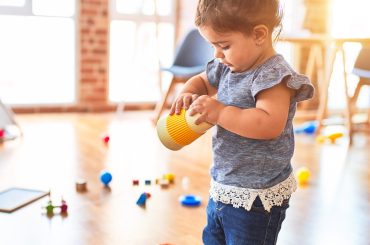Contents
Self-Discovery
It is essential to know parenting and its background of it. This guide will help you discover yourself if you are a new parent in the journey of parenting.

What is the purpose of parenting?
As we know, parenting is the more challenging yet exciting job in the world. It is valuable for us to know why parenting is essential.
- To raise children who can care for themselves and positively contribute to society.
- To grow, learn and unlearn with children.
- Protecting the unique and authentic self of children.
What are the myths about parenting?
There are myths and beliefs when it comes to parenting. It differs culturally and regionally. Here are some myths about parenting.
- Parenting is about the child and not you.
- There are perfect parents.
- Parenting cannot be learnt.
- There is a set style of parenting.
- Parents know everything, and children are like white papers.
- We can mold children as we need.
Four types of parenting
We can consider four main types of parenting, as mentioned below.
- Authoritarian
Focus on obedience, punishment, and discipline
- Authoritative
Create a positive relationship and enforce rules.
- Permissive
They don’t enforce rules saying, “kids will be kids.”
- Neglectful
Uninvolved, provide little guidance, nurturing, or attention.
Unlock Yourself to Unlock Your Child
What is unlocking?
Unlocking yourself means coming out of the comfort circle you are in and learning new things that are needed and, most importantly, un-learn the things that are not necessary. This is an essential aspect of the journey of parenting.
Why is it important?
When you unlock yourself, you feel happier and relaxed and be present in that moment.
But sometimes, it is challenging to discover ourselves and be ourselves. That is because of ego and negligence.
How to unlock yourself?
First, realize you are born with a purpose. Then be whole and complete. Have attachments, obsessions, protectiveness, and possessiveness. An essential factor is to stop being victims of social pressures and know you are enough. Learn to spend quality time with yourself to cultivate mindfulness.
Mindfulness here means a mental state achieved by focusing on the present moment while calmly acknowledging and accepting one’s feelings, thoughts, and bodily sensations.
Creating more profound connections with your child
As a parent, building a deeper connection with our child is crucial. To know them better and guide them well.
What is the Deeper Connection?
It is a feeling of alignment and intimacy between two people that goes beyond the physical self and into the soul level.

How to connect deeper with your child?
1. Who is a child – deep awareness
- Parent-child relationship
- They are not our property
- They are our teachers
- They are not white papers
- They are given to us for us to grow
We need to understand the above-said factors to have a deep awareness of the child.
2. Unconditional love and acceptance
What is unconditional love? It is a pure form of love without any expectations. As humans, we develop expectations from our loved ones. So, to have a good connection, we must have love without any expectations.
Because
- Expectations create conditional love
- Expectations ruin connections
3. Connect with yourself
It would be best if you connected well with yourself to make a good connection with your child.
- Know your deep desires ad unfulfilled dreams and work towards them.
- Know your fears and overcome them.
4. Respond from your essence, not your ego.
Learn to respond from your true self keeping aside the ego.
5. Let go of the urge to control
Be free and relaxed. Be your true self.
6. Know who your child is.
- Release them from all your expectations. Let them be amazing in their way.
- What is their authentic voice? They should be able to express themselves without any fears and obstacles.
- Do not suppress and punish them.
- When you are emotional, avoid shouting. Instead, be calm.
7. Acknowledge emotions
Do not suppress and punish them.
8. Enjoy the ordinariness
- Ordinariness is extraordinary. Accept it.
- Enjoy family meals. Having meals together is a good thing to build connections.
- Physical touch like hugs, kisses, or even a pat would make them feel great.
- Waking in the rain, sun, or birdsong gives different experiences. Enjoying them together makes a bond that is valuable for a lifetime.
9. Grow together
- Do things together. Get their assistance in the day-to-day chores. It helps them learn the work as well.
- Spend time and engage fully. This means giving quality time. Keep away the devices and spend your time whole with your kids.
- Listen without judgment. Kids should feel secure to tell you anything. Please give them a good ear to build their trust in you.
- Appreciate their existence.

Blessings of Mindful Parenting
What is mindful parenting?
Mindful parenting is the process of parenting while purposely bringing one’s attention to what is happening in the present moment without any judgments.
Key points of mindful parenting
- Being conscious about the present.
- Acceptance and compassion
- Responding instead of reacting.
Mindful parenting is a journey. We can say mindfulness is like a muscle. It is a lifelong learning journey. Being mindful, we can understand that no one is perfect and life is not a bed of roses.
Blessings of mindful parenting
- Reduce anxiety and depression
- Help children in dealing with learning, emotional, and behavioral problems
- It makes you more creative
- Brings out positive behavior in kids.
- This will be a more enjoyable way of parenting.
- It helps in building deep connections
- It helps to focus and slow down
- It makes us calm and is less burden
- This enriches our authentic being
What are the best situations to practice mindful parenting?
- When your baby doesn’t sleep.
- When your child is throwing a temper tantrum at a mall
- When your child doesn’t want to share their toy
- When your child doesn’t listen.
Digital Childhood
What is childhood?
Childhood is not into a fixed age. The experience and meaning of childhood differ across societies, periods, and between different groups.
Childhood means much more than just the space between birth and attaining adulthood. Instead, it refers to the state and condition of a child’s life, to the quality of those years.
What is digital childhood?
There are two categories of people in the digital era. Digital natives and digital immigrants. Our kids today are digital natives.
The massive neural interconnectivity in the brain changes and evolves throughout childhood in response to the environment and the child’s actions. Today’s younger children’s brains develop differently from today’s adult brains.
The digital world is no more an option for our kids. Because our kids are born in a digital era. But as parents, we need to focus on digital division, how to mitigate the harms and how to maximize the benefits.

Harms and risks of the digital world
- Reduced focus and attention
- Connected but not connected
- Dependence on device and technology
- Obesity and other physical issues such as eye strain and sleeping disorders.
- Cyberbullying
- Access to unsuitable content
- Child abuse, grooming, sexting
Benefits of digital technology
- Better hand-eye coordination
- Improves language skills and logical skills
- Higher capacity for visual attention
- Creativity and freedom of expression
- Problem-solving and empowerment
- Access to a wealth of information
- Learning is beyond imagination
- Increased opportunities
What is the recommended screen time by age?
Reference: American Academy of Pediatrics
- 18 months and younger – only video chatting
- 18-24 months – high-quality programs with parents
- 2–5-year-old – 1 hour per day of high-quality programs. Parents or caregivers should help children to understand the content
- Six years and up – put limits on screen time and types of media
Things to keep in mind
- Limit screen time
- Interactive is better than passive
- Choose high-quality content
- Empower yourself with digital tools
- Ensure safety
- Do not treat technology as a nanny
- Create tech-free zones and times in your house
- Help children choose productive games
- Encourage outdoor free play
- Model real human connections for them to know the values of relationships
In today’s world, with advancement in technology and other things, we also see different types and topics in parenting. Enlighten yourself with knowledge on creative parenting.





